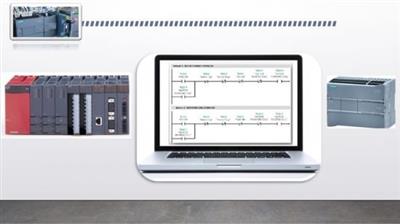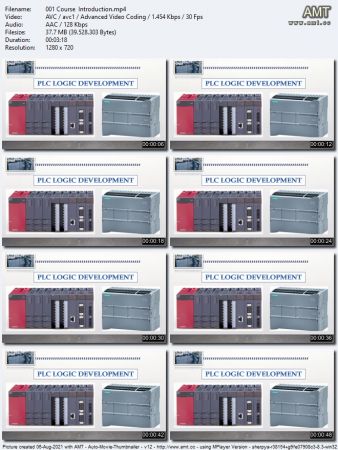MP4 | Video: h264, 1280x720 | Audio: AAC, 44.1 KHz, 2 Ch
Genre: eLearning | Language: English + srt | Duration: 13 lectures (57m) | Size: 334.2 MB
PLC Programing using Bit Logic Operation and Simple Instructions
What you'll learn:
PLC Basics-Architecture,Applications,Types
Addressing of PLC
Ladder Logic Rules
Ladder Logic Development
Requirements
Basic Electrical
Description
Welcome to this E-Learning Module on PLC Logic Development- An Engineer's Bootcamp.
Industrial automation began long before PLCs. In the early to mid 1900s, automation was usually done using complicated electromechanical relay circuits. However, the amount of relays, wires and space needed to create even simple automation was problematic. Thousands of relays could be necessary to automate a simple factory process.
In 1968 the first programmable logic controller came along to replace complicated relay circuitry in industrial plants. The PLC was designed to be easily programmable by plant engineers and technicians that were already familiar with relay logic and control schematics. Since the beginning PLCs have been programmable using ladder logic which was designed to mimic control circuit schematics.
Although, the first PLCs were very limited in their memory and speed capabilities, they quickly improved over the years. The presence of PLCs helped to simplify the design and implementation of industrial automation.
The PLC provided several advantages over earlier automation systems. It tolerated the industrial environment better than computers and was more reliable, compact and required less maintenance than relay systems.
So, Congratulation.
You have chosen to learn on a subject which is among the most needed and most prevalent phenomenon -PLC Logic Development.
Who this course is for
Industry Beginners
Plant Maintenance
Project Engineering professional
Download link:Kod:rapidgator_net: https://rapidgator.net/file/92873f22650e116d4e7a1313744c9aec/65lab.PLC.Logic.Development.An.Engineers.Bootcamp.rar.htmlLinks are Interchangeable - No Password - Single Extraction
1 sonuçtan 1 ile 1 arası
-
06.08.2021 #1Üye



- Üyelik tarihi
- 20.08.2016
- Mesajlar
- 144.947
- Konular
- 0
- Bölümü
- Bilgisayar
- Cinsiyet
- Kadın
- Tecrübe Puanı
- 153
PLC Logic Development- An Engineer's Bootcamp
Konu Bilgileri
Users Browsing this Thread
Şu an 1 kullanıcı var. (0 üye ve 1 konuk)



 LinkBack URL
LinkBack URL About LinkBacks
About LinkBacks






 Alıntı
Alıntı
Konuyu Favori Sayfanıza Ekleyin